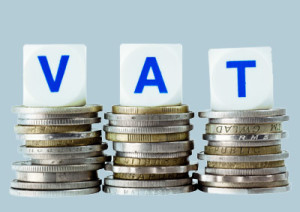 Members of the Gulf Cooperation Council (GCC) are working towards introducing a Value-added Tax (VAT) around the region and a draft agreement was adopted by its Financial and Economic Cooperation Committee according to reports monitored on Kuwaiti state news agency KUNA which quoted Kuwait’s Minister of Finance Anas al-Saleh. The low prices of oil could also be pushing the six-member states towards the decision.
Members of the Gulf Cooperation Council (GCC) are working towards introducing a Value-added Tax (VAT) around the region and a draft agreement was adopted by its Financial and Economic Cooperation Committee according to reports monitored on Kuwaiti state news agency KUNA which quoted Kuwait’s Minister of Finance Anas al-Saleh. The low prices of oil could also be pushing the six-member states towards the decision.
Talks to introduce VAT in the GCC has been going on for more than 10 years without any major step taken but low prices of oil and increasing budget deficits are forcing the governments to give it a serious consideration. Successive talks have been held but its implementation must be simultaneous in the six-member countries of the GCC in order to avoid smuggling of untaxed goods across borders that could amount to billions of dollars in losses. Each state is expected to have its own VAT law but it will be based on the common principles of the Doha agreement.
Almost all the countries in the GCC deprive 80-90% of their state income form oil sales and there have been efforts to diversify it.
A timetable has not been set for the introduction of VAT but it is believed that it would be an unpopular economic reform in the wealthy Gulf oil exporting states and will be a politically sensitive topic because their populations have become used to lavish social welfare spending and near-zero taxation.
If the low oil prices continue, the Gulf States could be introducing more taxes considering that the GCC has called on the International Monetary Fund’s expertise on the effects of the low oil prices on GCC member states, especially on their financial stability, domestic energy prices and tax policies.
